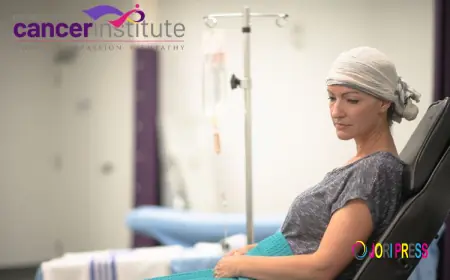Why Home Healthcare Is Essential After Surgery
Home Health Care in Dubai & Abu Dhabi provides a wide range of Home Healthcare facilities in the comfortable environment of your home for your convenience.

Recovering from surgery doesn’t end when the hospital stay is over. In fact, one of the most crucial phases of healing happens at home. Home Healthcare Dubai offers a seamless transition from hospital to home, ensuring a safer, more comfortable recovery process for patients after surgery.
A Familiar Environment Encourages Faster Healing
Healing in the comfort of one’s own home brings a sense of calm and familiarity. The psychological comfort of being surrounded by personal belongings and loved ones can have a powerful impact on the recovery process. Home healthcare allows patients to rest and recuperate without the noise and stress of a clinical setting, helping them regain strength with peace of mind.
Personalized Care Tailored to Individual Needs
One of the key benefits of home healthcare after surgery is the individualized attention it provides. Rather than following a general care routine, the care plan is tailored to the specific recovery needs of the patient. This might include wound care, mobility assistance, or guidance with daily tasks that might be difficult immediately after surgery.
Care providers are trained to observe subtle signs of progress or complications and adjust the care approach as needed. This level of attention helps ensure recovery stays on track.
Physical and Emotional Well-Being Go Hand in Hand
Post-surgery healing isn’t only about physical recovery. Emotional support plays a vital role, especially during the early days when mobility is limited. Home healthcare professionals often provide a comforting presence, boosting morale and reducing the feelings of loneliness or helplessness that can sometimes accompany surgery recovery.
This support can make it easier for patients to stay positive and engaged in their healing journey, which contributes to better overall outcomes.
Reduced Risk of Infections
Hospitals, despite being highly sanitized environments, can sometimes expose patients to a variety of infections. Once a patient is stable, continuing recovery at home lowers the chances of hospital-acquired infections. Home healthcare helps maintain cleanliness and proper hygiene while reducing exposure to unfamiliar germs, promoting a safer healing space.
Help With Mobility and Safety Around the House
After surgery, even simple movements can feel challenging. Tasks like climbing stairs, getting in and out of bed, or preparing meals may require extra support. Home healthcare providers assist with mobility and ensure the home environment is safe and accessible.
They may help rearrange furniture, suggest supportive equipment, and guide patients on how to move safely, helping to prevent falls or injuries during the recovery phase.
Support for Daily Activities and Medication Management
Home healthcare professionals assist with essential daily routines such as bathing, dressing, and eating, especially when these become difficult after surgery. Having someone available to help with these personal tasks relieves stress and helps patients maintain dignity and comfort.
In addition, support with medication routines ensures that medicines are taken correctly and on time, contributing to proper healing and reducing the chances of missed doses or confusion.
Involving Loved Ones in the Healing Process
Family and friends often want to be part of the recovery journey, and home healthcare makes this easier. Caregivers can provide valuable education and guidance to loved ones, helping them understand how to support the patient effectively. This involvement strengthens emotional bonds and creates a supportive network that fosters healing.
Encouraging Independence and Confidence
As patients regain strength, home healthcare encourages gradual independence. With professional guidance, individuals often learn how to manage tasks on their own, increasing confidence and reducing feelings of dependence. This empowerment is a key part of long-term recovery and well-being.
Monitoring Recovery Progress Closely
Regular monitoring is essential after surgery to ensure everything is healing properly. Home healthcare professionals keep a close eye on vital signs, wound healing, and overall progress. Early detection of any concerns allows for timely adjustments to the care plan, reducing the likelihood of complications.
Better Rest and Routine
Being in a familiar home environment allows for better sleep and a more natural routine. Disruptions common in clinical settings are minimized, which helps support the body’s natural healing process. A consistent sleep-wake cycle, balanced meals, and the comfort of home contribute greatly to smoother recovery.
FAQs
What does home healthcare involve after surgery?
Home healthcare includes a variety of services aimed at helping someone recover safely at home. These can range from wound care, mobility assistance, help with personal hygiene, to monitoring progress and ensuring medication schedules are followed correctly.
Who benefits from home healthcare after surgery?
Anyone who has undergone surgery and needs support with daily tasks, mobility, or medical monitoring can benefit. It’s especially useful for those who may live alone or feel uneasy managing recovery on their own.
Is home healthcare only for major surgeries?
No, even minor surgeries can result in limited mobility or discomfort during recovery. Home healthcare can help with everything from short-term support to more complex recovery needs.
Can family members be involved during home healthcare?
Yes, family members are encouraged to be part of the process. They can assist under the guidance of home healthcare professionals, learn more about how to support their loved one, and feel more connected during recovery.
How does home healthcare help prevent complications?
By providing close monitoring and timely care, professionals can spot early signs of infection, improper healing, or other issues. This helps to adjust care as needed and reduces the chance of more serious complications.
What kind of professionals are involved in home healthcare?
Depending on the patient’s needs, Home Healthcare in Dubai may involve a combination of nurses, physical therapists, and personal care aides. Each plays a different role in supporting recovery, offering both medical and practical assistance.
How long does someone usually need home healthcare after surgery?
The duration varies depending on the type of surgery and the individual’s health status. Some people may only need a few days of support, while others might benefit from several weeks of care to ensure complete recovery.
A Trusted Path to Recovery
Healing after surgery takes time, patience, and the right kind of support. Home healthcare offers a practical and compassionate solution by combining professional care with the comfort of home. It bridges the gap between hospital care and full independence, making the journey to recovery smoother, safer, and more reassuring for every individual involved.
What's Your Reaction?
 Like
0
Like
0
 Dislike
0
Dislike
0
 Love
0
Love
0
 Funny
0
Funny
0
 Angry
0
Angry
0
 Sad
0
Sad
0
 Wow
0
Wow
0















































